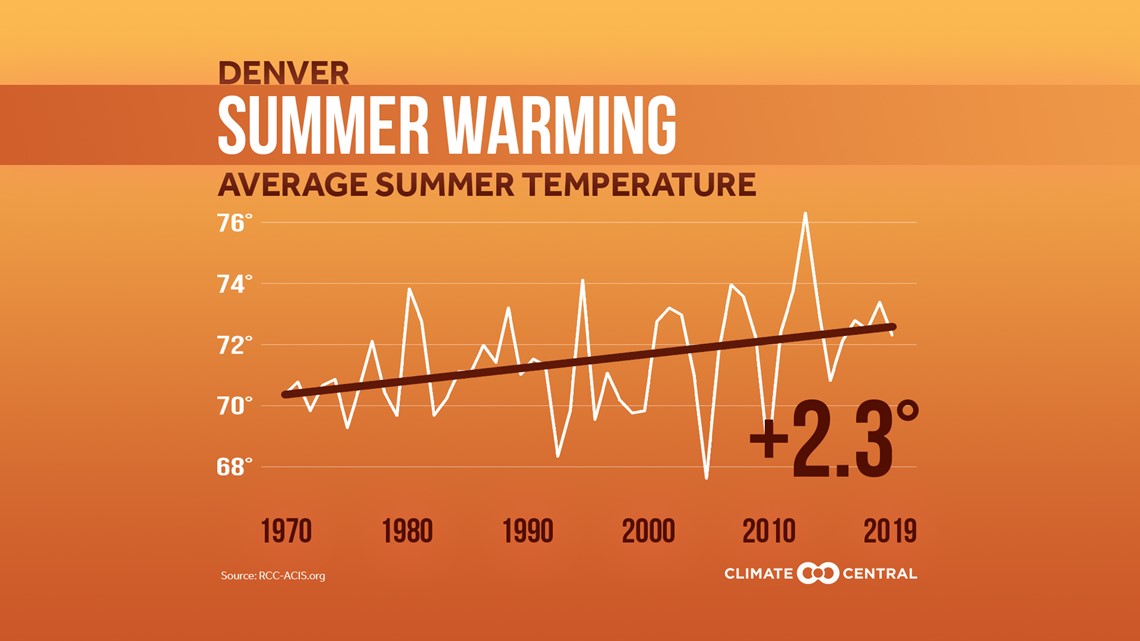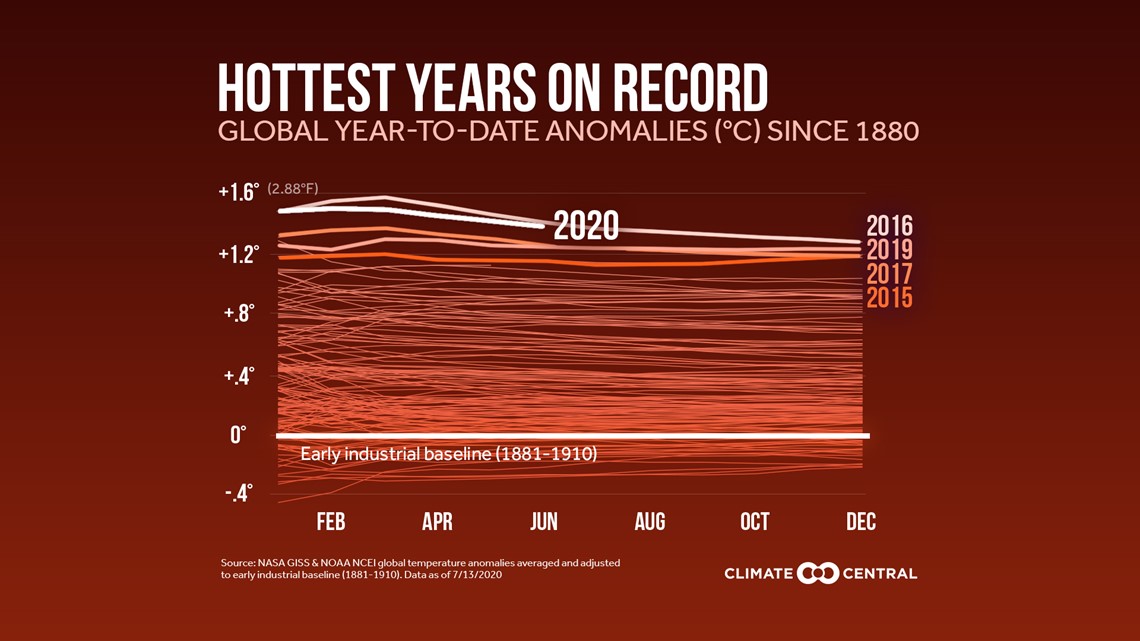COLORADO, USA — Extreme heat has been smothering the western part of the county this summer. The 100-degree measurement in Denver on Tuesday broke a record high for Aug. 18, and a 130-degree temperature in Death Valley, California over the weekend was an all-time record there.
It is only natural to wonder if the 2020 heatwave is a result of climate change, but heatwaves are weather events and not climate events.
Here’s a good way to look at it:
Weather is erratic and happens fast, changing from minute to minute and month to month. It has many extreme highs and lows.
Climate is slow and steady. The average of that weather.
One hot summer is not climate change, but it is a part of a trend that clearly shows climate change in action.
For example, the average summertime temperature in Denver has gone up 2.3 degrees since 1970 despite some extremely hot summers and some cooler ones along the way.


And this is happening all over the globe. The average temperature is up nearly three degrees over the past 120 years, and 2020 is on pace with 2016 to become the hottest year ever measured on the planet.


The 2020 extreme heat does fit into another theory associated with climate change. Scientists believe that the warming of the planet will lead to more extreme heatwaves, droughts and wildfires in some areas, while other spots will see more extreme flooding, hurricanes and thunderstorm clusters.
SUGGESTED VIDEOS: Science is Cool

